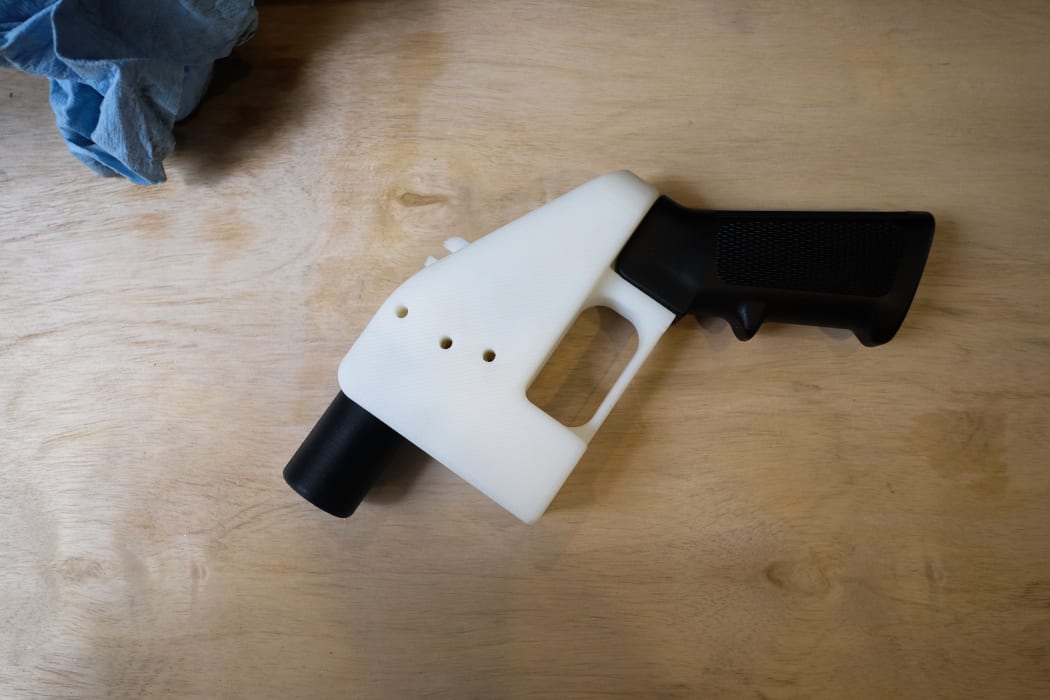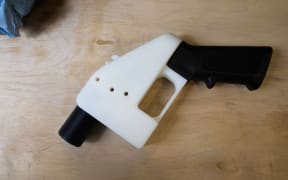Firearm laws may need to adapt to keep up with the changing technology used to print 3D guns, says a law and technology expert.

A 3D printed gun, called the "Liberator", is seen in a factory in Austin, Texas Photo: AFP
Police in New Zealand are monitoring developments around 3D printed firearms, which are assembled from plastic parts that can be made with a 3D printer.
University of Otago's Law and Emerging Technologies director, Colin Gavaghan said while the cost is currently too high for most people, printed guns may become a problem when the equipment used to make them improves and becomes cheaper.
"I think what's concerning some legislators is if it was possible to have an all-plastic weapon, the concern there is it would evade certain types of detection equipment.
"If that were to become feasible, then you could have a rule that prohibits an entirely plastic gun," he said.
Mr Gavaghan said the guns could already be covered under the current Firearms Act.
"It is an offence to possess certain types of firearm without a licence, what we don't have is a specific offence relating to 3D printing of weapons, neither do we have a specific offence in manufacturing the weapons."
He said it would be incredibly difficult to stop blueprints being accessible online and police could instead investigate the possibility of regulating who owns 3D printing devices.
However, he said the technology isn't at the stage where people need to worry right now.
The Council of Licensed Firearm Owners' chairman Paul Clark agreed the technology isn't at the stage that causes concern and the firearms were of more risk to the makers than to the public.
However, Mr Clark who also owns New Zealand Ammunition, was worried any changes to the Firearms Act could hurt businesses who use similar technology.
"It would be a major concern because it would stop innovative people here. It is already beneficial in terms of printing metal, there are people making those type of components here for firearms and exporting them successfully," he said.
He said people already need a license to obtain a firearm, so if criminals want to make 3D firearms, they'd do so even if it was illegal.
"We'd be better to concentrate on carrying on the bulk of the current laws and enforcing them a little more rigorously," he said.
Mr Clark added most firearm owners are law abiding.



